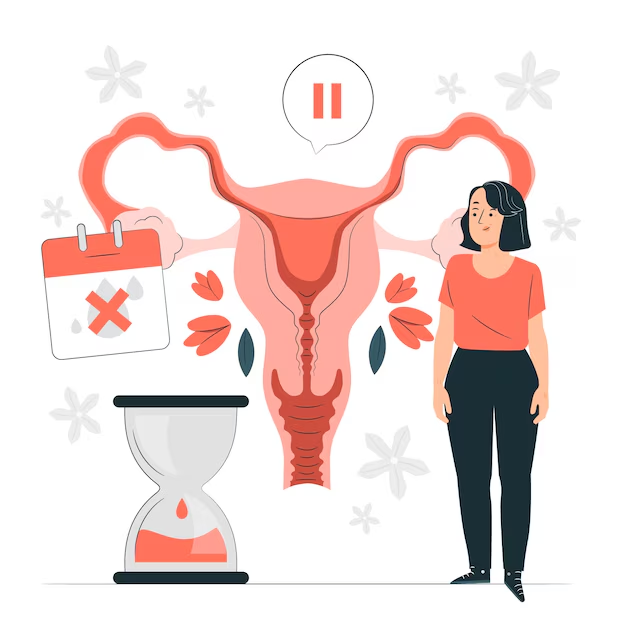
Polycystic Ovary Syndrome (PCOS) is a condition that many young women in India face today. If you’re experiencing symptoms like irregular menstrual cycles, weight gain, and fertility challenges, you’re not alone. The good news? Effective PCOS treatment options are available.
This blog will discuss the problems young women face with PCOS, what can help, and how you can take control of your health. Remember, PCOS is not just about physical symptoms; it can significantly impact your mental well-being and overall lifestyle. Sounds absolutely like a villain, right?
Well, this is the reason it is crucial to understand this syndrome for your health journey. You will discover the types of PCOS, symptoms, risks, and, most importantly, the treatment options that can help you manage your health effectively. Let’s understand PCOS from its definition first, ok?
What is PCOS?

PCOS is a hormonal disorder that affects how a woman’s ovaries function. It is characterised by irregular menstrual periods, excess hair growth (hirsutism), acne, and obesity. The underlying cause of PCOS is still not fully understood, but it is believed to involve a combination of genetic, hormonal, and environmental factors.
With about 1 in 10 women of reproductive age diagnosed, PCOS can lead to a variety of health complications. Women with PCOS often have higher levels of insulin. So if you are noticing sudden weight gain, before blaming that extra cookie, you may wanna check with your doctor. And, hey, we don’t wanna scare you off, PCOS treatment can obviously manage weight gain and other PCOS symptoms. Don’t know what they are? Let’s find out together.
What are the Symptoms of PCOS?

Though we love you as you are, we don’t want you to have bad health just to fit in the “My Body, My Choice” campaign. Some common symptoms of PCOS include:
- Irregular or missed periods
- Excess hair growth on the face and body (hirsutism)
- Acne and oily skin
- Thinning hair on the scalp
- Weight gain or difficulty losing weight
- Dark patches of skin (acanthosis nigricans)
Did you find anything similar that is going on in your body from the above list? Don’t self-diagnose. These syndromes are common and can be related to other underlying diseases. But the real issue is dealing with various types of PCOS, as their treatments are different, you might need a moment to get a grasp of it all.
Read Also: Lifestyle Changes for Managing PCOS for Unmarried Women
Types of PCOS and Effective PCOS Treatments

Polycystic Ovary Syndrome (PCOS) presents differently in each woman, with unique symptoms and underlying causes. Understanding your specific type of PCOS can guide more effective, personalised treatments. Here’s an overview of the main types of PCOS and the best approaches to manage each one.
- Insulin-Resistant PCOS
Insulin-resistant PCOS is the most common type, characterised by elevated insulin levels. As it sounds, it can trigger the body to produce excess androgens, leading to symptoms like weight gain, irregular periods, and increased hair growth.
Insulin-Resistant PCOS Treatment:

- Diet & Lifestyle: Focus on a balanced diet low in refined carbs and sugars, while increasing fibre and protein intake. Regular exercise, including strength training and cardio, can improve insulin sensitivity.
- Medication: Metformin is often prescribed to help manage insulin resistance and promote regular ovulation. Supplements such as inositol can also support insulin regulation.
- Stress Management: Since stress can worsen insulin resistance, practices like meditation, yoga, and getting adequate sleep are beneficial.
- Post-Pill PCOS
Post-Pill PCOS occurs after discontinuing hormonal contraceptives, which may temporarily disrupt hormone balance. You may experience symptoms like acne, irregular cycles, or increased androgens.
Post-Pill PCOS Treatment:
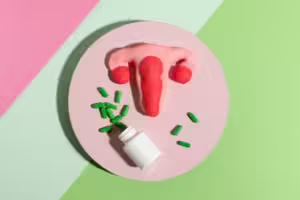
- Hormone Balance: Herbal supplements can support hormone rebalancing. A diet rich in leafy greens, whole grains, and lean proteins helps stabilise hormones.
- Allow Adjustment Time: Symptoms may naturally resolve within a few months as the body readjusts. Monitoring symptoms and maintaining a healthy lifestyle are key.
- Supportive Therapy: If symptoms persist, hormone therapy or supplements targeting specific issues (like zinc for acne) can be effective.
- Inflammatory PCOS
This type of PCOS is driven by chronic inflammation in the body, leading to hormonal imbalances and symptoms such as fatigue, skin conditions, and joint pain. Inflammatory PCOS often coexists with other inflammatory conditions.
Inflammatory PCOS Treatment:

- Anti-Inflammatory Diet: Focus on whole foods, rich in Omega-3 fatty acids (such as salmon and chia seeds), antioxidants (like berries and leafy greens), and fibre. Avoid processed foods, sugar, and refined oils.
- Supplements: Curcumin (found in turmeric), Omega-3, and Vitamin D can help reduce inflammation and improve hormone balance.
- Lifestyle Adjustments: Adequate sleep, stress management, and gentle exercise, like yoga, can further reduce inflammation.
- Adrenal PCOS
Adrenal PCOS is characterised by excess androgens released from the adrenal glands, often in response to chronic stress. Women with this type may experience symptoms like anxiety, fatigue, and irregular menstrual cycles.
Adrenal PCOS Treatment:
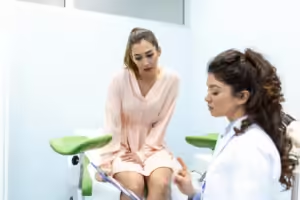
- Stress Reduction: Prioritise activities that help manage stress, like meditation, mindfulness practices, and breathing exercises.
- Balanced Diet: Focus on a diet that supports adrenal health, including complex carbs, lean proteins, and healthy fats.
- Supplements & Medication: Adaptogens like ashwagandha and liquorice root can support adrenal health, while certain medications may be necessary to manage hormone levels.
Also Read: Lifestyle Changes for Managing PCOS for Unmarried Women
- Hidden (Non-Classic) PCOS
This type may not show typical PCOS symptoms and is often diagnosed only after thorough hormone testing. Women may experience mild symptoms like acne or subtle menstrual irregularities, which can make diagnosis challenging.
Hidden (Non-Classic) PCOS Treatment:
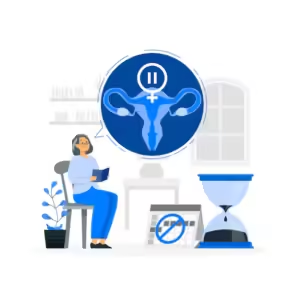
- Hormone Testing: Regular hormone testing can help identify hormonal imbalances and detect any underlying issues.
- Symptom-Targeted Treatment: Lifestyle changes and symptom-specific treatments, such as targeted skincare for acne or supplements to support menstrual health, can be beneficial.
- Lean PCOS
Lean PCOS affects women who are of a healthy weight but still experience PCOS symptoms, such as irregular periods or mild androgen excess. This type can sometimes go unrecognised due to the absence of weight-related symptoms.
Lean PCOS Treatment:

- Diet Optimisation: A balanced diet with an emphasis on whole foods, avoiding excess sugar, and maintaining steady blood sugar levels can support hormone balance.
- Medication: Depending on symptoms, medications to regulate menstrual cycles or lower androgen levels may be prescribed.
- Exercise: Regular, moderate exercise can help support metabolic health without significantly focusing on weight loss.
- Obesity-Related PCOS
This type is closely linked to excess weight, where obesity exacerbates PCOS symptoms and increases insulin resistance. Managing weight can have a significant impact on symptoms of this type of PCOS.
Obesity-Related PCOS Treatment:

- Structured Weight Loss: A gradual, sustainable weight loss plan with a focus on a low-carb or Mediterranean-style diet can help reduce symptoms.
- Regular Exercise: Incorporate a mix of cardio and strength training to improve metabolic health.
- Medical Support: In some cases, medications or supervised weight loss programmes may be helpful for symptom management.
So there are all the types of PCOS have been discovered so far. But hey, is this THE END? Once you are diagnosed with PCOS, you have all these treatment options. But how do you prevent one? Let’s understand that.
How to Prevent PCOS?

You must have noticed your friend, family member or co-worker is diagnosed with PCOS. And your heart is shaking by seeing them going through the stress over their health. So, you are trying to find “prevention” options before “cure”. Here are some practical tips on the prevention of PCOS.
- Balanced Diet: Include whole foods, fruits, vegetables, lean proteins, and healthy fats. Avoid processed foods high in sugar.
- Regular Exercise: Aim for at least 30 minutes of moderate exercise per day to help manage weight and insulin levels.
- Stress Management: Practice stress-reducing techniques such as yoga, meditation, or mindfulness.
Bas! That’s it. Prioritise your choices on lifestyle changes, and you can significantly reduce your risk of developing PCOS or help manage its symptoms if you already have it.
Read Also: Health and Wellness Importance in 2025: Am I healthy?
Conclusion
Managing PCOS can be challenging, but understanding the condition and its implications is the first step towards effective treatment. With various options available, including lifestyle modifications and medical treatments, you can take charge of your health and well-being. Remember, you are not alone in this journey, and there is a wealth of resources to help you handle PCOS. Also, here is a reminder: do not stress about PCOS; it is common, and effective treatments are available in modern medicine.
FAQs
1. Can PCOS be cured?
Currently, there is no cure for PCOS, but it can be managed effectively through lifestyle changes and medical treatments.
- Is PCOS hereditary?
Yes, genetics play a significant role in the development of PCOS.
- How does PCOS affect pregnancy?
Women with PCOS may face fertility challenges, but with proper treatment, many can conceive.
- Are there natural remedies for PCOS?
Some women find relief through natural remedies such as herbal supplements and dietary changes, but it’s essential to consult a healthcare provider.
- What is the role of insulin in PCOS?
Insulin resistance is a key feature of PCOS, and managing insulin levels can help alleviate many symptoms.


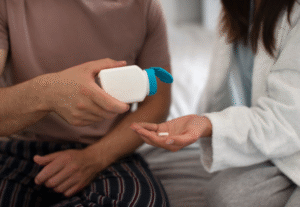




Wow! Thank you! I permanently wanted to write on my website something like that. Can I include a part of your post to my site?
yup, don’t forget to interlink or site the source